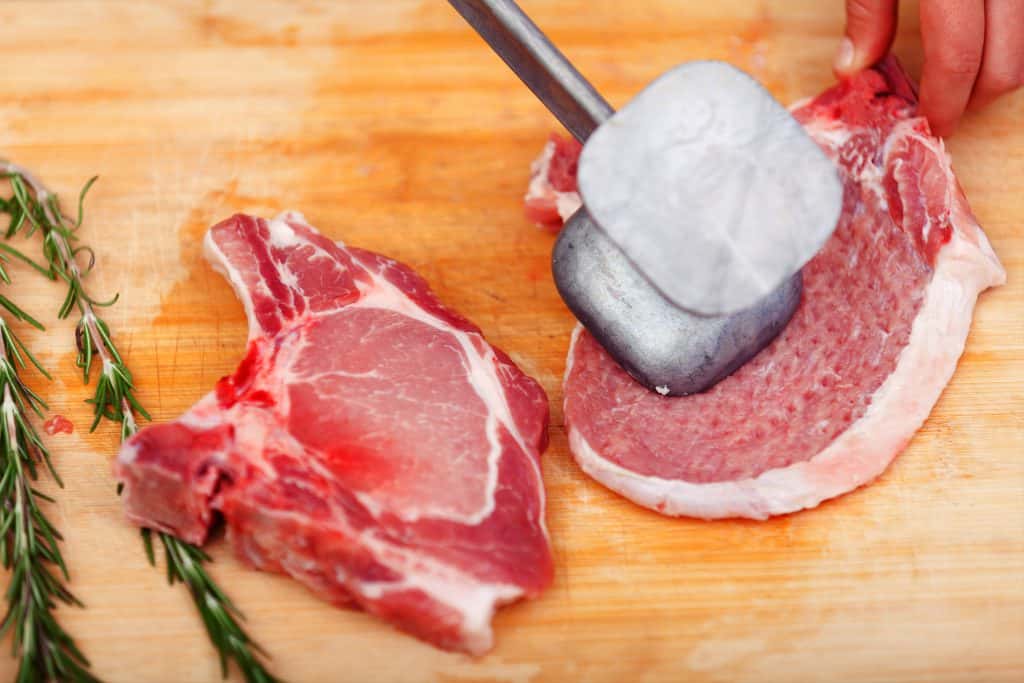Are you looking for ways to tenderize your meat that don’t involve a store-bought tenderizer? You’re in the right place! It’s here where you will discover how to tenderize meat without tenderizer. Yes, it is possiblewhether you’re preparing a roast chicken, succulent steak, or tender pork. Lets dive deep into the science of tenderizing and explore various methods that you can easily adopt at home.

Understanding Meat Tenderization
The fundamental aim of tenderizing meat is to break down muscle fibers and make the meat easier to chew and digest. This applies to all types of meat, including chicken, beef, and pork. Various factors contribute to meat toughness, including the age of the animal and the cut of meat.
The Role of Protein
Proteins in meat are responsible for its toughness. Understanding the role of proteins can help in selecting the appropriate tenderizing method. Methods usually aim to break down or alter these proteins.
Enzymes in Meat
Naturally occurring enzymes can help in tenderizing meat, but certain external applications can speed up the process. For instance, fruit enzymes from pineapple or papaya can help break down proteins.

Common Tenderizing Methods Without a Tenderizer
Using Marinades
Marinades are a terrific way to tenderize meat. Ingredient like acidic components, such as vinegar, lemon juice, or even yogurt, can work wonders. Let the meat soak in the marinade for several hours for the best results. Check this on cooking chicken leg quarters.
Salt and Herb Rubs
Another common method is using salt rubs. Salt can disrupt the structure of the muscle fibers, making the meat tender. Create a rub with salt, herbs, and spices, and let it sit on the meat for a few hours before cooking. Check this on cooking chicken drumsticks in an air fryer.

Innovative Techniques
Pounding the Meat
Using a meat mallet or even a rolling pin, you can gently pound the meat. This method works well for tougher cuts of meat. Pounding breaks down the tissue, making the meat easier to chew.
Velveting with Baking Soda
This Chinese technique involves coating meat in a baking soda solution. Leave it for 15 minutes then rinse thoroughly before cooking. This method works especially well for chicken, beef, and pork.
Slow Cooking and Stewing
Cooking meat slowly over low heat for an extended period can break down tough tissue. This works excellently in stews and braises. Check this on cooking spatchcock chicken.
Alternative Methods and Techniques
Brining
Brining involves soaking meat in a saltwater solution. This process adds moisture and flavor to the meat, keeping it tender during cooking. Check this on cooking chicken livers.
Using Dairy Products
Using dairy products like buttermilk or yogurt in marinades can help in tenderizing meat. These not only tenderize but also impart a rich flavor to the meat.
FAQs
Q: How long should I marinate meat for optimal tenderness?
A: It depends on the cut and type of meat. Generally, 2-24 hours is a good range.
Q: Can fruit juices be used for tenderizing?
A: Yes, juices like pineapple and papaya contain enzymes that help break down proteins in meat.
Q: Is slow cooking effective for all types of meat?
A: Slow cooking is particularly useful for tougher cuts of meat that benefit from extended cooking times.
Learn more about how different tenderizing methods work.
As an Amazon Associate, I earn from qualifying purchases.








